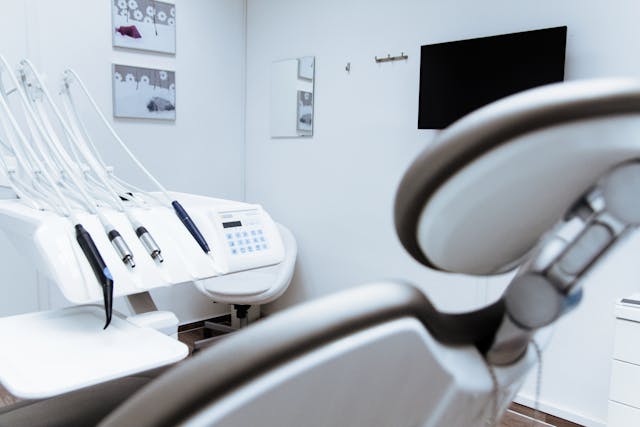“It’s going to take at least 12 months to see results”.
“We have acquired 2 new backlinks in the last 2 months”.
Run. If you hear these words from your SEO agency. The reason I say this is because any agency with the right tools and expertise should be able to rank your business and start generating new leads from months 2-3 onwards. Of course, I’m assuming the competition and search volumes for your services in your city is average.
The conversation should be about new business/leads that your SEO agency is bringing in and not around rankings, traffic — that’s how you know you’re working with an agency that knows what it’s doing.
If you’re a small business owner looking to budget your marketing expenses or switch your SEO agency, here’s a quick guide on how to do it.
Table of Contents
ToggleWhy focus on SEO in 2024?
ROI and building ‘SEO equity’.
As a small business owner, you have limited capital. So every penny needs to work for you today, tomorrow and show tangible results, in the form of leads. And, SEO is a perfect place to start when you’re looking to up your online presence.
It costs almost $0 to get up and running. Start with creating a Google Business Profile if you don’t have one. If you have one, update it today!
Here’s an example of building SEO equity. For the first eight months, traffic remained flat with occasional dips. Once the foundational things were cleaned up with their website and a consistent content velocity was established, they had a tremendous growth (and are still growing). All the SEO equity that was built initially is helping build the momentum and has a compounding effect on traffic & leads.

This is not anything related to 2024 but has always been the way a business can use SEO to gain competitive advantage. It can position you as a thought leader, make your website a lead gen machine.
Two things to keep in mind when allocating budget for SEO
Ensure your agency gives you a clear explanation of the deliverables, how they’re allocating resources and what are the KPIs to judge performance at various points in engagement.
Prioritize Efficient Spending: It’s not just about how much you spend, but where and how you spend it. Investing in quality over quantity is key. Look for an SEO agency that offers tailored strategies, not one-size-fits-all solutions.
Transparency is Crucial: Choose an agency that’s upfront about their methods and progress. Regular reports and open communication are signs of a trustworthy partner. Remember, it’s your money, and you have the right to know how it’s being used.
Also, it is fair to not expect leadflow to be consistent for the first few months. So ask the agency on tracking performance metrics, what KPIs to follow for the first few months and when is it realistic to start expecting leads to flow.
How Small Businesses can Budget for SEO?
As a business owner, when budgeting for SEO in 2024, ask yourself
- the average customer lifetime value
- does your business have a monthly recurring revenue
- how big is your city/your competition
- your current cost of acquisition of new clients/ your marketing cost of acquisition
- Current lead flow from website/Google Business Profile
- Are your goals long term or short term
Your answers to these questions will largely determine the SEO budget. On an average, most small businesses in mid-tier cities, in a competitive industry, spend at least $3000-$4000/month on SEO.
Or, if you want to think in terms of a percentage of revenue, here’s a broad breakdown:
| City | Recommended Marketing Spend as a Percentage of Revenue |
| Small | Less than 5% |
| Mid | 5-10% |
| large | 10-20% |
Strategic Allocation of Your SEO Budget
After understanding the basic factors that influence your SEO budget, it’s time to strategize how to allocate the funds:
- Content Creation: High-quality, original content is the backbone of SEO. Allocate a significant portion of your budget to creating service pages, blog posts, infographics, and other content that resonates with your audience and boosts SEO efforts.
- On-Page Optimization: This includes optimizing your website’s structure, meta tags, and improving user experience. Ensure your site is fast, mobile-friendly, and provides a seamless user experience.
- Off-Page Activities: Backlinks are crucial for SEO success. Invest in building high-quality backlinks from reputable sites. This may involve content marketing, PR, or outreach campaigns.
- Technical SEO: Technical aspects like site speed, mobile-friendliness, and structured data are more important than ever. Part of your budget should go towards technical audits and improvements.
- Local SEO: If you’re a local business, local SEO can’t be ignored. This includes optimizing your Google Business Profile, press releases, GBP posts and local citations.
Why SEO for Small Businesses is Tricky
Not all small businesses require the same SEO approach.
For example, if you’re an optometrist or an optician, you’d be better off doing hyperlocal SEO. There’s an optometrist in every neighborhood – and you’d want to rank across multiple neighborhoods near your location. While ranking on top for a relevant search term, like “optometrist in <city>” is useful, you will need to think why would someone from across the city want to travel across multiple optometrists to meet you.
On the other side, if you’re a lawyer, a more broad local SEO approach works. Here you would want to rank on top for all search terms related to your city.
Similarly, the state of your current website and its rankings, your Google Business Profile, competition, etc. all play a role in understanding how easy or complex the SEO execution is going to be.
No budget for marketing or SEO?
Depending on the competition, you may be able to get some basic things done. Of course, it might not be enough to generate consistent leads but will ensure you represent your business properly to prospective clients.
We recommend allocating at least $500-$1000 for some bare minimum SEO work. That way you would be able to ensure at least you give your business a chance to compete and grow.
When many businesses are cutting back on marketing expenses, it makes good sense for most to look at SEO, which has traditionally provided great ROI.
Having said that, if not done properly SEO can be disastrous to the brand. Many times no SEO is better than Bad SEO.
Get a free SEO Audit done today
We work with small businesses across North America. If you’re thinking about leveling up your business using SEO, what your competitors are doing or what opportunities exist for your services, allow us to show you the possibilities.
Get started with the free SEO audit here.



